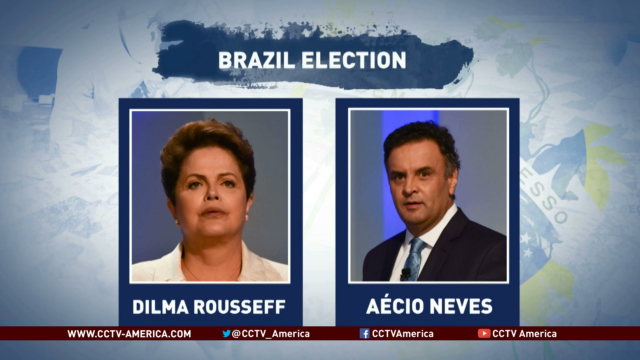Two candidates with two different visions for Brazil are running for president and will go head-to-head in a runoff election later this month. The Heat speaks with experts on the runoff between the incumbent and her pro-business challenger.
Brazilians went to the polls Sunday but still couldn’t decide on new president. The incumbent, Dilma Rousseff, got close to 42 percent of the vote but failed to win a majority. Now she will face a pro-business candidate, Aecio Neves, in a second round of voting on October 26. Neves, a centrist senator who had been widely written off until a few days before Sunday’s first-round vote, rode a late surge in support to grab second place with 33.6 percent of the vote.
Observers say this is Brazil’s most unpredictable race in decades. Rousseff remains a slight favorite as she has strong support among Brazil’s poor but Neves is within striking distance and is expected to pick up most of the 21 percent of voters who backed third-placed finisher, environmentalist Marina Silva. What sort of campaign can we expect in the coming weeks and what will the outcome mean for Brazil, Latin America’s largest economy? CCTV America’s Paulo Cabral reports from Sao Paulo with details.

The Heat is joined by Paulo Sotero director of the Brazil Institute at the Woodrow Wilson Center in Washington, D.C., to talk about elections and what it means for the Brazil’s economy.

Also joining the conversation is Jose Roberto de Toledo, leading political columnist from Sao Paulo. On Twitter: @zerotoledo
Mark Langevin the director of BrazilWorks, an advisory and consulting firm in Washington, D.C. also speaks to The Heat about the impact of the runoff elections.

 CGTN America
CGTN America

